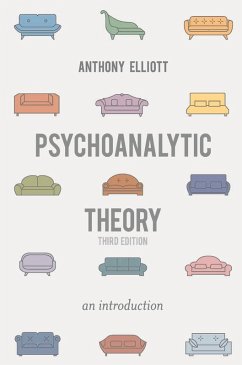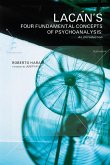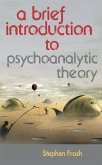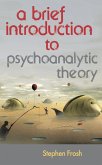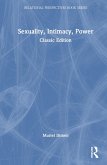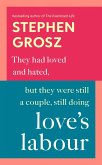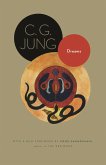Influential, exciting and often controversial, psychoanalytic theory has had a major impact in the humanities and social sciences.
In a new edition of this classic book, Anthony Elliott masterfully introduces the reader to psychoanalytic theory.
- discusses leading psychoanalytic theorists - from Freud to Lacan, Klein to Kristeva, Zizek to Laplanche;
- examines the political and cultural dimensions of psychoanalytic studies, from feminism to postmodernism;
- contains new material on Lacanian and post-Lacanian theory, the post-Kleinian psychoanalyst Wilfred Bion, psychoanalytic feminism and deconstructive psychoanalysis.
Written by one of the world's leading social theorists, this engaging and influential text is essential reading for anyone wanting to learn about psychoanalytic theory and its cultural importance in our lives.
In a new edition of this classic book, Anthony Elliott masterfully introduces the reader to psychoanalytic theory.
- discusses leading psychoanalytic theorists - from Freud to Lacan, Klein to Kristeva, Zizek to Laplanche;
- examines the political and cultural dimensions of psychoanalytic studies, from feminism to postmodernism;
- contains new material on Lacanian and post-Lacanian theory, the post-Kleinian psychoanalyst Wilfred Bion, psychoanalytic feminism and deconstructive psychoanalysis.
Written by one of the world's leading social theorists, this engaging and influential text is essential reading for anyone wanting to learn about psychoanalytic theory and its cultural importance in our lives.
"Elliott's accessible prose and lively style combined with the huge breadth of his knowledge of the field make for a timely new edition of his widely read Psychoanalytic Theory: An Introduction . Elliott's focus is our complex subjectivity, understood both in terms of its personal location and those subjective phenomena which transcend the self. With coverage of new developments in psychoanalytic studies and additional profiles of figures such as Zizek and Butler, this book provides nourishing Bionic food for thought." - Paul Hoggett, Emeritus Professor of Social Policy, University of the West of England, UK
"This is an exceptionally lucid, learned and comprehensive examination of the richly diverse field of psychoanalysis in the twentieth and twenty-first centuries. Elliott makes the case for the continuing relevance of psychoanalysis to the humanities and social sciences by demonstrating the linkages between psyche, politics and culture in each major strand of psychoanalytic theory since Freud. A truly impressive achievement!" - Madelon M. Sprengnether, Regents Professor, Department of English, University of Minnesota, USA
"This is an exceptionally lucid, learned and comprehensive examination of the richly diverse field of psychoanalysis in the twentieth and twenty-first centuries. Elliott makes the case for the continuing relevance of psychoanalysis to the humanities and social sciences by demonstrating the linkages between psyche, politics and culture in each major strand of psychoanalytic theory since Freud. A truly impressive achievement!" - Madelon M. Sprengnether, Regents Professor, Department of English, University of Minnesota, USA

